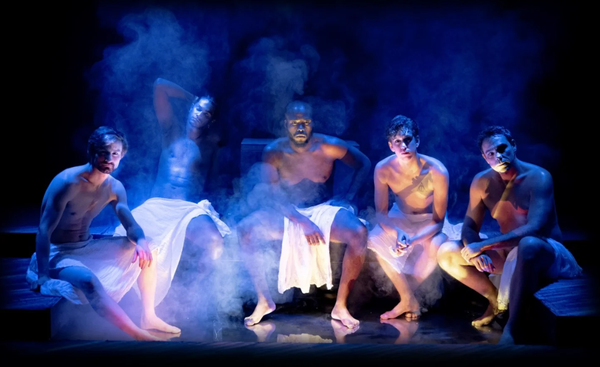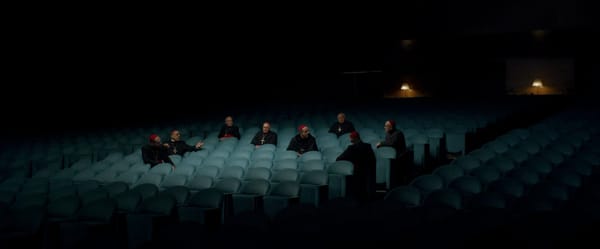Is there freedom in life elsewhere?
A cinematic masterpiece from Senegal
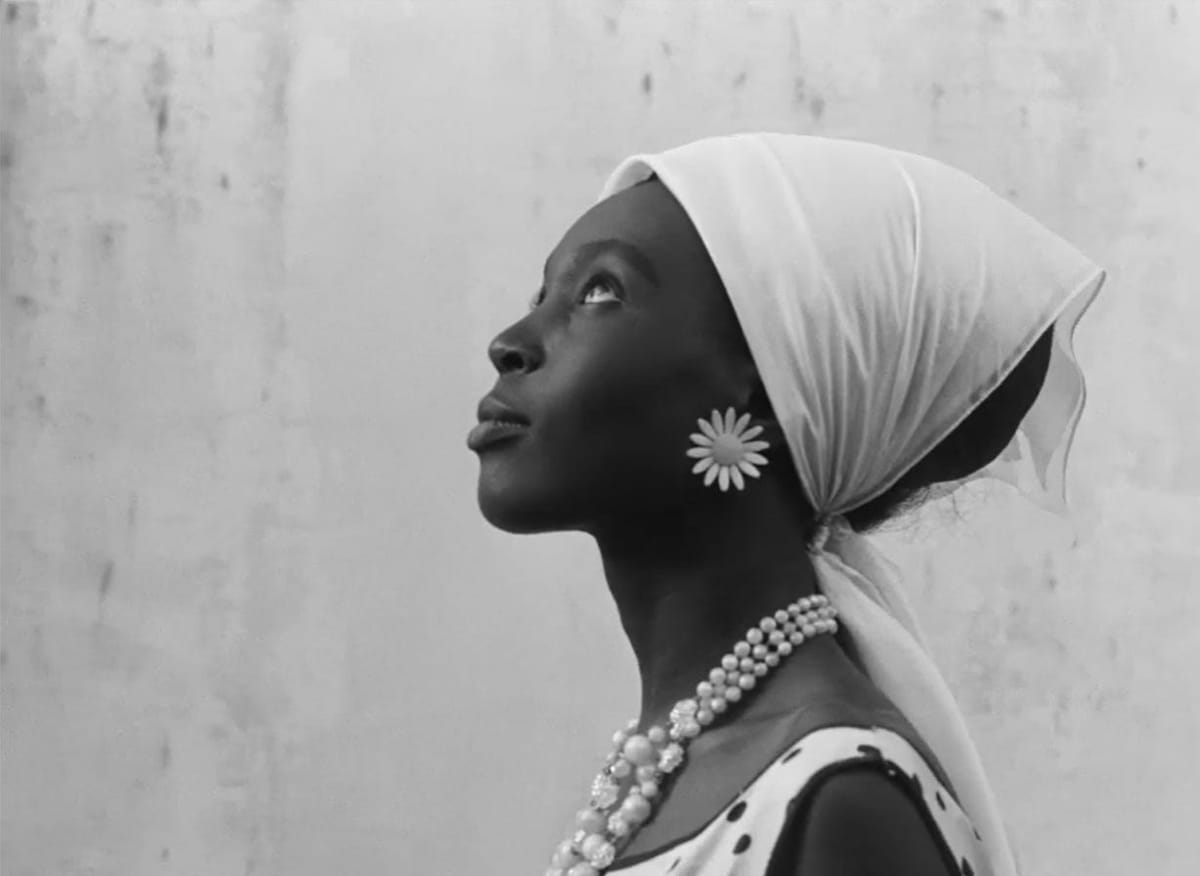
When Diouana — the protagonist of Ousmane Sembène’s Black Girl (1966) — is offered a job working for a white family in France, her dream of an idyllic European life is quickly shattered.
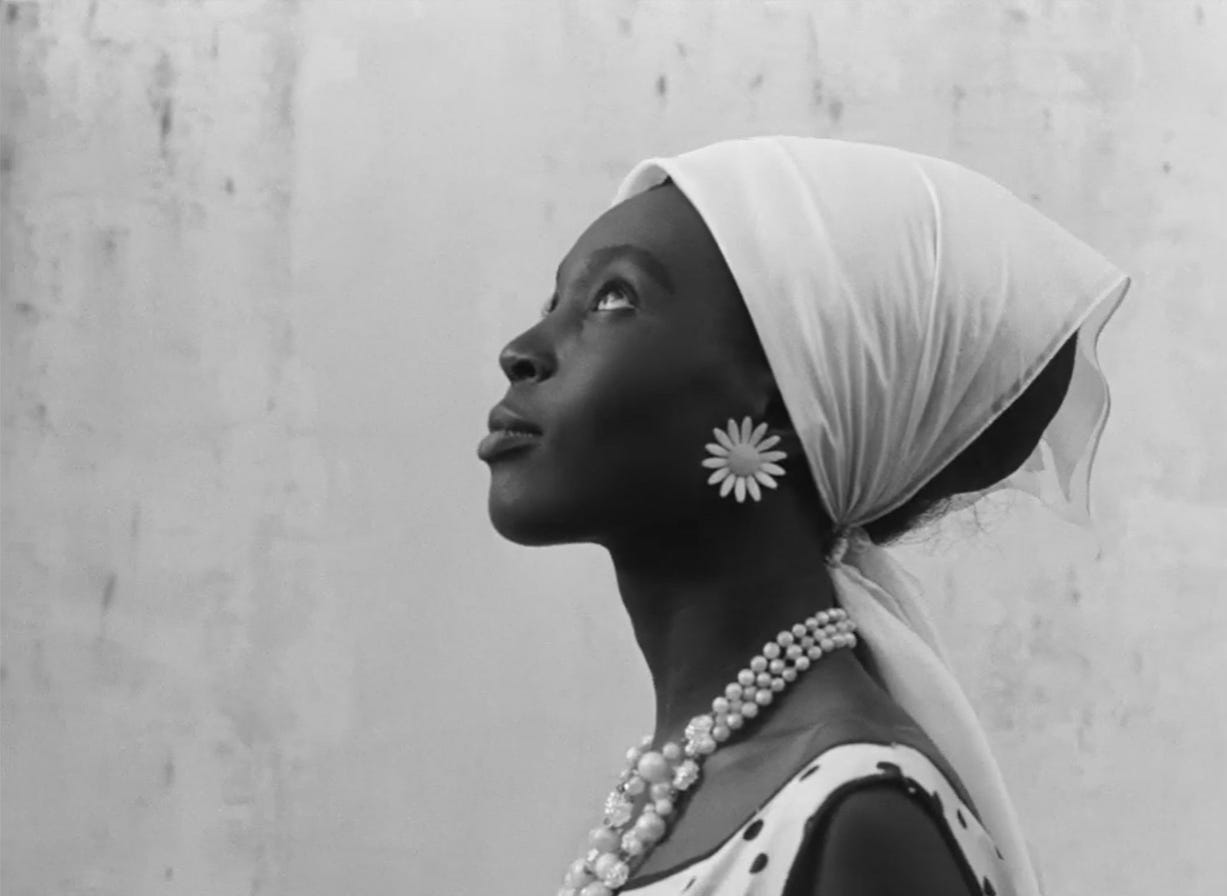
Black Girl is one of my first ventures into remedying a major gap in my movie watching: African cinema. The history of filmmaking in Africa is very much tied to colonialism across the continent. Cinema, like many other cultural products, was (and still is) a tool used to control how African people were represented both to the world and to themselves. But let’s let the writer Ngũgĩ wa Thiong'o explain it better:
Since culture does not just reflect the world in images but actually, through those very images, conditions a child to see that world in a certain way, the colonial child was made to see the world and where he stands in it as seen and defined by or reflected in the culture of the language of imposition.
— Decolonising the Mind
Although wa Thiong'o is criticising the harmfulness of colonial languages here, it can also apply to the language of cinema.
While researching Black Girl, I came across this brilliant introduction to Sembène and African cinema, which explains how the camera is essentially a white supremacist tool of empire. So when an African person takes hold of the camera, it creates the potential for radical, subversive images that counteract the violent representations of Africans in colonial films. It’s a form of cultural liberation but, as we see across many former colonies, liberation often remains an idealised goal that’s never fully realised.
We see this sense of failed liberation in our protagonist, Diouana.
Diouana believes France is going to be her door to a brighter existence outside of her home in Dakar, Senegal. Yet, the reality of life overseas is more like imprisonment than the romantic voyage she’d imagined. She’s even haunted by the life she left behind through a traditional mask she gifts her employer that hangs on the living room wall.
This mask is one of the most striking symbols in the movie and is a crucial part of the story’s conflict and conclusion.
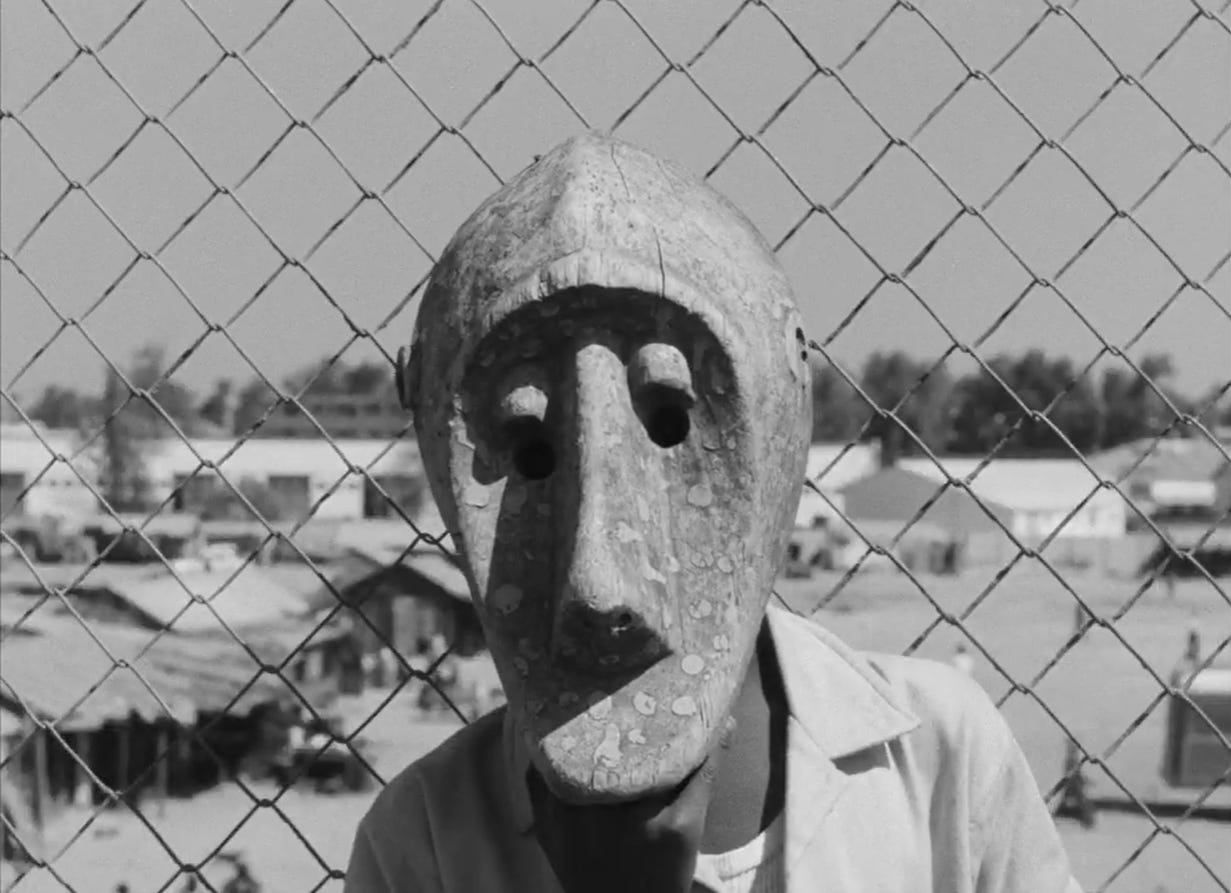
It’s difficult to see a mask in this context and not think of Frantz Fanon’s Black Skin, White Masks. Though admittedly I’ve only read fragments of the book, there’s definitely something bubbling beneath the surface of this connection. “Black skin, white masks” is the idea that in order to be seen as human in colonial society, Black people need to assimilate to whiteness:
For the Negro in France, which is his country, will feel different from other people. One can hear the glib remark: The Negro makes himself inferior. But the truth is that he is made inferior … the individual who climbs up into society — white and civilised — tends to reject his family — black and savage …
— Black Skin, White Masks
So it’s interesting to see how the mask in Black Girl shifts in meaning throughout the movie depending on who it belongs to. In France, it’s an exotic feature in the white couple’s house but when it eventually returns to its original owner in Senegal, it becomes a source of fear that literally chases the French husband out of the Senegalese village. For me, this shows a subversive use of Fanon’s “white mask” against rather than in service to colonial powers while also reclaiming the African identity that the mask represents.
It’s significant then that the movie’s French title, La Noire de…, captures this ambiguity of existing as a colonised being. The word “de” can be translated to “from” or “of” and so holds two meanings simultaneously: one that suggests origin (Black Girl from…) and another that suggests possession (Black Girl of…). In the movie, Ousmane Sembène challenges us to think about what it means to be liberated from a place, a person, or a system, and whether that liberation can ever be what we hoped for.
I could go on for thousands of words about Black Girl but instead, I’ll leave you with a couple of links I found useful to understand the movie and its context:
Videos/Podcasts
📺 Ousmane Sembène on Cinema as Activism
📺 Awa Konaté’s talk on Ousmane Sembène and African cinema
🎧 Quick introduction to Ousmane Sembène
Articles
📝 An Introduction to “Father of African Cinema” Ousmane Sembène
📝 Black Girl: Self, Possessed (I highly recommend this read!)
Bonus
I watched Black Girl for free over on Internet Archive, which I’ve recently discovered has many African films (and books!) available that would otherwise be nearly impossible to find on mainstream streaming platforms.
If you’ve found value, joy, or comfort in The Kulturalist, consider clicking the button below to support my work. Your generosity keeps the words flowing. Thank you for being here!


